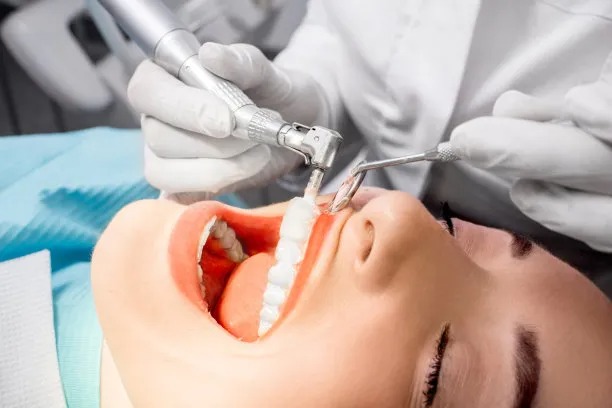Summary: Dental implants are a reliable solution for tooth replacement, yet they require careful consideration before undergoing the procedure. This article explores essential precautions that can enhance recovery and ensure long-lasting results. Topics addressed include understanding the procedure, evaluating personal health, choosing a qualified dental professional, and following post-operative care guidelines. Each aspect is crucial for minimizing complications and facilitating a successful implant experience. By delving into these precautions, patients can achieve optimal outcomes and enjoy the benefits of their new dental implants for many years.
1. Understanding the Dental Implant Procedure

Before undergoing a dental implant procedure, its crucial to understand what the process entails. Dental implants involve surgically placing a titanium post into the jawbone, which serves as a root for the artificial tooth. Patients should familiarize themselves with each stage of the process, including consultation, placement, and recovery. This knowledge helps set realistic expectations regarding timelines and potential discomfort.
Additionally, individuals must consider the various types of dental implants available. Different options may suit varied dental needs and preferences, such as endosteal (within the jawbone) or subperiosteal (above the jawbone) implants. Consulting with a dental professional can clarify which type of implant is best suited for each unique situation.
Understanding the risks involved in the procedure is just as important. Potential complications can include infection, nerve injury, or implant failure, which underscores the need for thorough research and discussion with the dental team prior to making decisions.
2. Evaluating Personal Health and Medical History
Your personal health plays a significant role in the success of dental implants. Certain medical conditions, such as uncontrolled diabetes, can hinder healing and increase the risk of complications. It’s vital to disclose your complete medical history to your dentist, including any medications you are currently taking, as some medications can affect bone healing.
Additionally, habits such as smoking can adversely impact the success of dental implants. Tobacco use is known to hinder healing and increase the risk of implant failure. If you smoke, consider quitting before the procedure to boost your chances of a successful outcome.
Finally, maintaining a healthy lifestyle leading up to the procedure can enhance recovery potential. Eating a balanced diet rich in vitamins and minerals can provide the body with the essential nutrients for optimal healing and support the gums and bone needed for implant success.
3. Choosing a Qualified Dental Professional
Selecting the right dental professional is critical to the success of dental implant procedures. Look for a dentist or oral surgeon with specialized training and experience in dental implants. Research their credentials and read reviews from previous patients to gauge their reputation and expertise.
During the initial consultation, ask about the professionals success rates with dental implants, as well as their approach to managing complications should they arise. A trustworthy professional should be transparent about their methods and willing to address all your concerns and questions.
Moreover, its essential to ensure that the dental facility is well-equipped and adheres to strict hygiene standards. A clean and safe environment greatly reduces the risk of infections, which can impede recovery and lead to implant failure.
4. Following Post-Operative Care Instructions
Post-operative care is crucial for a smooth recovery following dental implant surgery. Patients should closely adhere to the care instructions provided by their dental professional. This may involve dietary restrictions, such as sticking to soft foods and avoiding hard or sticky items that could damage the implant.
Pain management is another critical aspect following the procedure. Your dentist may prescribe pain relief medication to address any discomfort during the initial days after surgery. Consistent follow-ups with your dental provider can help ensure that the healing process is on track and any issues are promptly managed.
Lastly, maintaining good oral hygiene is vital to securing the long-term success of dental implants. Regular brushing, along with the use of antimicrobial mouth rinses, can help prevent infection and promote healing. Regular dental check-ups allow for monitoring the implants status and making any necessary adjustments along the way.
Summary:
In summary, undergoing dental implant procedures necessitates careful planning and adherence to essential precautions. Understanding the procedure, evaluating personal health, opting for a qualified professional, and following post-operative care can significantly enhance recovery and the longevity of the implants. By considering these factors, patients can look forward to achieving the best possible results from their dental implant experience.
This article is compiled by Vickong Dental and the content is for reference only
Vickong Dental
Vickong Dental is a large medical group established in Hong Kong in 2008 by professors from well-known medical universities in Guangdong and Hong Kong, as well as medical doctors from key national '985' universities (including Master's supervisors and senior professors). The chain of branches brings together expert dentists with PhDs and Master's degrees from Hong Kong and Mainland China, committed to providing high-quality dental treatment.
"Vickong Dental Practices the University Motto of 'Healing and Serving Society,' with a Stable Operation for Sixteen Years. It Has Been honored with Hong Kong Enterprise Leaders's Choice,' and is a Global Trusted Implant Center for the Nobel Implant System. Recommended by Hong Kong Metro Broadcast and Guangdong Television, it Serves Customers from Over Thirty Countries and Regions, Gaining the Trust and Favor of Citizens from the Guangdong-Hong Kong-Macau Greater Bay Area and Surrounding Cities.

Thousands of customers' unanimous praise
The most recognized and highly recommended dental service by customers in the Guangdong-Hong Kong-Macau Greater Bay Area
We Ensure You Receive Detailed Care and Attention Here
Hong Kong standards, Shenzhen prices, Your Trusted English-speaking dentists

Vickong Dental Medical-Grade Instrument Disinfection Process
Vickong Dental Medical-Grade Instrument Disinfection Process

Vickong Dental Chain: A Warm and Comfortable Environment for Treatment






Appointment Hours

Q&A
Why choose Vickong Dental?
Vickong Dental practices the university motto 「Medicine to Benefit Society」, with each branch bringing together highly qualified dentists with doctoral and master’s degrees from Hong Kong and the Mainland, and has maintained seventeen years of steady operation。Recipient of 「2024 Hong Kong Enterprise Leaders Brand」, 「2025 Hong Kong Enterprise Leaders Brand」, a Nobel Biocare Global Trusted Implant Center, and a brand recommended by Metro Radio Hong Kong and Guangdong TV。
To date, we have served customers from more than thirty countries and regions,earning exceptionally high word-of-mouth recognition and trusted recommendations from residents across the Guangdong-Hong Kong-Macao Greater Bay Area and surrounding cities
We have eight major branches in Zhuhai、Shenzhen,and a consultation and service assurance center in Hong Kong,so you can book a free consultation at any time for any questions,which is very reassuring.
If I do not accept the quotation after the CT scan, will I be charged??
No! As long as the actual treatment has not started, you will not be charged any fees.
Will there be any additional charges during the treatment process?
No, there won’t be any additional charges. Before treatment begins, we will clearly explain the treatment plan and its corresponding fees. Only after the patient agrees and signs the consent form will we proceed with the dental service.
Can I pay in Hong Kong dollars?
Yes. Vickong Dental accepts payment in Hong Kong dollars. The amount will be converted based on the exchange rate of the day, and the applicable rate will be clearly communicated to you in advance.
Can I reschedule my appointment at any time?
Yes. Please contact us via **WeChat** or **WhatsApp** as early as possible, providing your original appointment time and details, along with your preferred new date and time slot for rescheduling.













